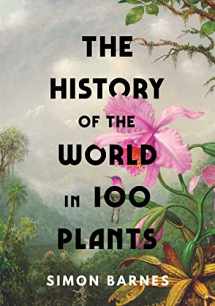
Barnes:The History of the World in 100
Book details
Summary
Description
From the author of The History of the World in 100 Animals , a BBC Radio Four Book of the Week, comes an inspirational new book that looks at the 100 plants that have had the greatest impact on humanity, stunningly illustrated throughout.As humans, we hold the planet in the palms of ours hands. But we still consume the energy of the sun in the form of food. The sun is available for consumption because of plants. Plants make food from the sun by the process of photosynthesis; nothing else in the world can do this. We eat plants, or we do so at second hand, by eating the eaters of plants. Plants give us food. Plants take in carbon dioxide and push out they give us the air we breathe, direct the rain that falls and moderate the climate. Plants also give us shelter, beauty, comfort, meaning, buildings, boats, containers, musical instruments, medicines and religious symbols. We use flowers for love, we use flowers for death. The fossils of plants power our industries and our transport. Across history we have used plants to store knowledge, to kill, to fuel wars, to change our state of consciousness, to indicate our status. The first gun was a plant, we got fire from plants, we have enslaved people for the sake of plants. We humans like to see ourselves as a species that has risen above the animal kingdom, doing what we will with the world. But we couldn’t live for a day without plants. Our past is all about plants, our present is all tied up with plants; and without plants there is no future. From the mighty oak to algae, from cotton to coca here are a hundred reasons why.


We would LOVE it if you could help us and other readers by reviewing the book
Book review



